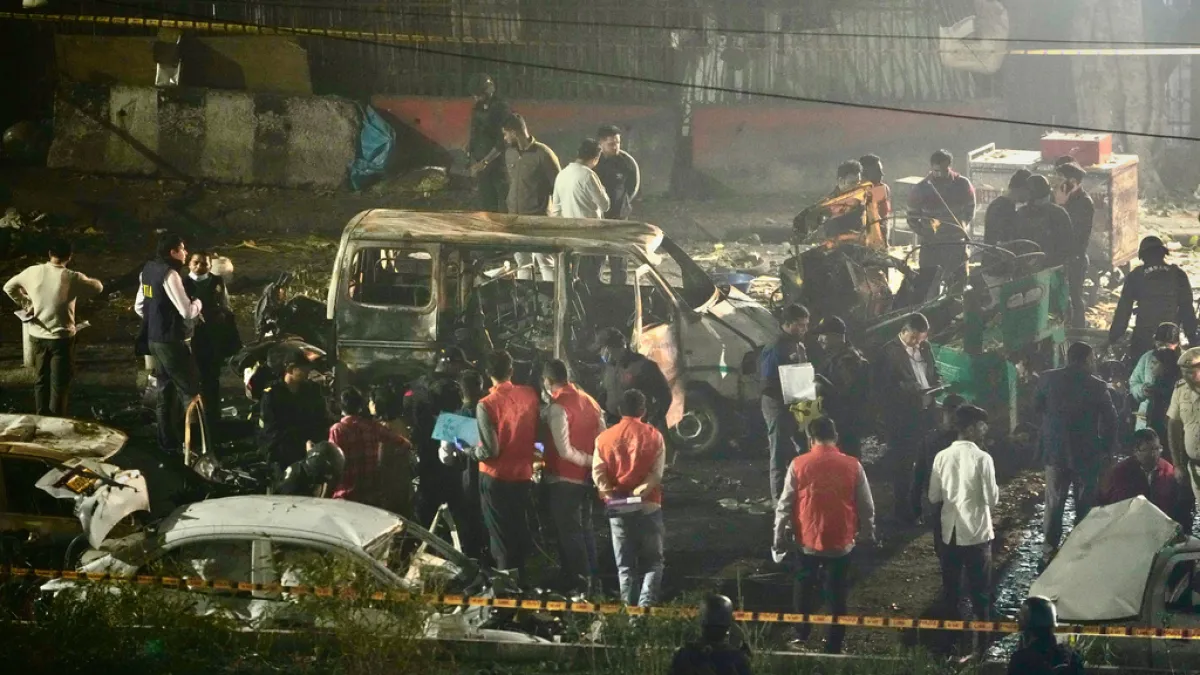
Indian anti-terrorism officials on Monday presented a man accused of involvement in last week’s deadly car bomb explosion in New Delhi, bringing the number of arrested suspects to three.
Authorities have released few details about the alleged motives or organisational links of the men, all of whom are said to be from Indian-administered Kashmir.
Kashmir, a region disputed by India and Pakistan since their partition in 1947, remains a flashpoint for tensions between the two neighbours—tensions that have intensified following recent violent incidents.
The National Investigation Agency (NIA) identified the latest suspect as Amir Rashid Ali, alleging that he conspired with the suspected suicide bomber, Umar Un Nabi, to execute the attack last Monday. The NIA reported a death toll of 10, though hospital officials told AFP that at least 12 people had been killed. It remains unclear whether Nabi is included in those figures.
The agency also announced the arrest of another alleged accomplice, Jasir Bilal Wani, who investigators claim provided technical support by modifying drones and attempting to fabricate rockets in preparation for potential attacks.
Earlier in the day, an AFP photographer witnessed Ali being escorted under heavy security into a New Delhi court, where local media reported he was remanded into NIA custody for 10 days.
The blast occurred near a busy metro station close to Old Delhi’s historic Red Fort, the site of India’s annual Independence Day address. Prime Minister Narendra Modi condemned the bombing as a “conspiracy” and vowed that those responsible—along with “their collaborators and sponsors”—would be brought to justice.
According to the NIA, Nabi had worked as a medical professor at a university in Haryana state, while Ali allegedly travelled to Delhi to help purchase the vehicle later used as the improvised explosive device.
Authorities have not released further information on the group’s possible motives or broader network.
The attack was the deadliest since April 22, when 26 civilians—mostly Hindu—were killed at a tourist site in Indian-administered Kashmir. India accused Pakistan of supporting that earlier assault, an allegation Islamabad denied.
In the aftermath, India launched strikes inside Pakistan in May, triggering several days of cross-border clashes that resulted in at least 70 deaths.
Following a ceasefire, Modi warned that “any attack on Indian soil will be considered as an act of war.”
On Monday, India’s Army Chief, General Upendra Dwivedi, issued a stern message of his own, saying the brief May confrontation should be viewed as only a “trailer,” not the “full film.”



